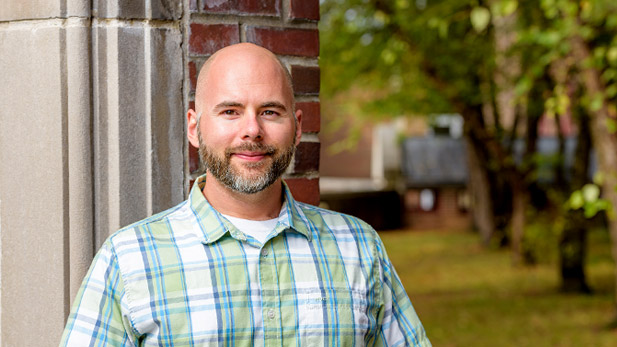Alumnus Ryan Poplin Using Deep Learning to Unlock World’s Complex Problems

Google’s Brain Genomics Team Leader Ryan Poplin, a 2004 alumnus, led the development of the popular Genome Analysis Toolkit, and is sought worldwide for his expertise on data science and computational genomics.
Machines that learn like people – a process known as “deep learning” – are taking science, math and computing to new vistas, unlocking age-old mysteries and producing medical breakthroughs once considered impossible.
For instance, the development of “stacked information” networks combined with imaging processes for examining the neurosensory tissue within the core of the human eye are helping ophthalmologists improve the early detection rates for vision loss in diabetics. Elsewhere, deep learning models are helping pathologists better identify cancerous cells in hopes of eliminating the one out of 12 breast cancer biopsies that are currently being misdiagnosed or undisclosed.
Ryan Poplin, a 2004 computer science and mathematics alumnus, is in the thick of this effort to employ deep learning solutions to some of the world’s biggest problems. He’s leading Google’s Brain Genomics Team that’s looking to identify possible differences with short DNA fragments–helping scientists and other researchers unlock the mysteries of such genetic diseases as cystic fibrosis and sickle cell anemia; produce plants with a higher nutritional value; and exchange DNA from persons to solve genetic dysfunctions.
“Big genomic data is moving at such rapid speeds. We’re talking in terms of petabytes (a million gigabytes) rapidly growing toward exabytes (one quintillion bytes),” he says. “Through extensions to the Google Cloud Platform, the same technologies that power Google Search and Google Maps are securely storing, processing, exploring and sharing large, complex datasets that are valuable resources to everyone.”
Poplin led the development of the Genome Analysis Toolkit, a popular software package for processing next-generation DNA sequencing data. He has been sought as a keynote speaker at conferences and workshops throughout the country for his expertise in data science and computational genomics. Publications by Google Brain team members have been featured in leading computer science journals.
“We’re talking about a whole new world for everyone in science, engineering, computer science and math. The possibilities are quite endless,” says Poplin.

